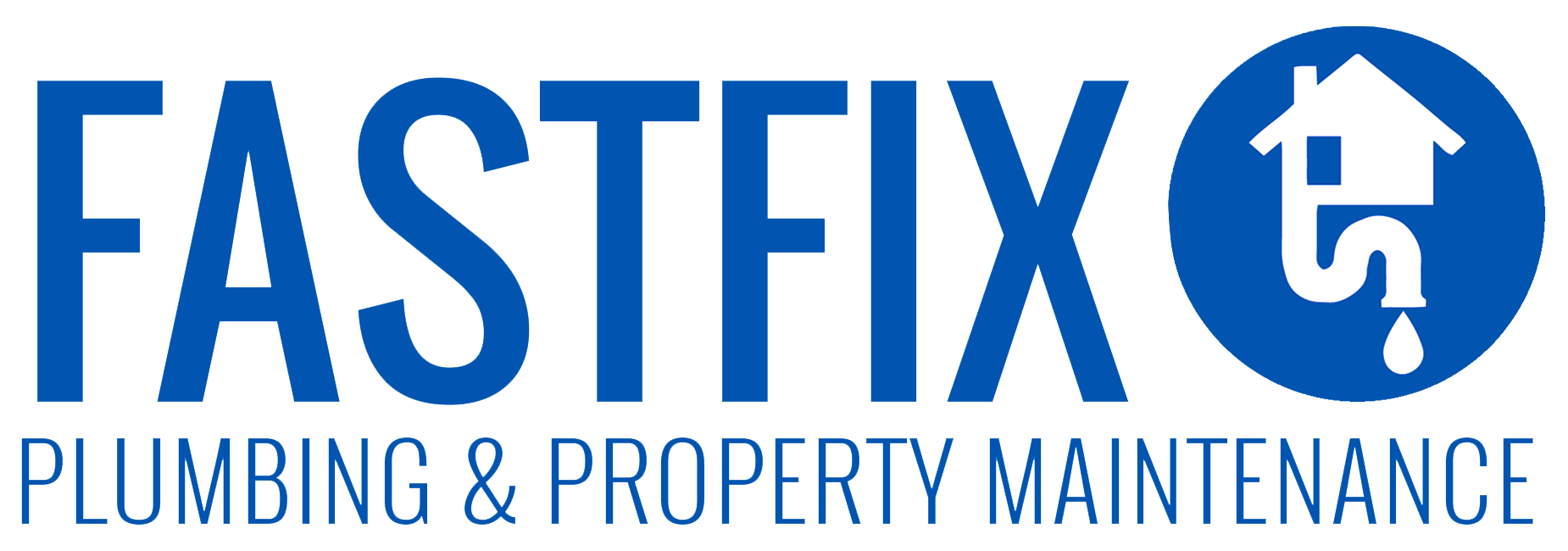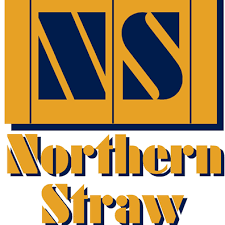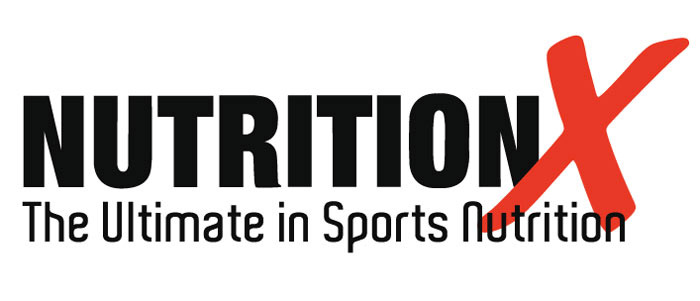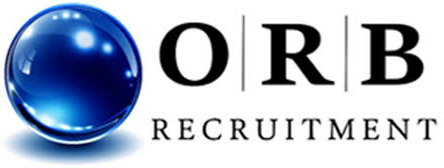Founded in 1875
Doncaster Rugby Football Club was founded in 1875 although there is some evidence of a rugby side in the town at an even earlier date. For the first 50 years of its existence it led a fairly nomadic life playing at numerous sites around the area: it even had a spell at the turn of the century when it became a Northern Union club.
The Early 1920s
In the early 1920s DRFC moved to a site near the town centre where it shared a ground with the cricket club. This uneasy liaison lasted for 30 years before the club moved to its existing ground at Armthorpe Road, some three miles away from the town. What started as a single pitch, two changing rooms and a small clubroom facility evolved over the years as a second and then a third pitch were added, eight additional dressing rooms were built, the original bar was extended, a gymnasium was erected and then converted into a second large bar, a grandstand was built and full playing floodlights were installed.
First Taste of Success
Playing-wise for many years Doncaster Rugby Football Club were a typical middle-of-the-road Yorkshire side enjoying good and bad seasons alike. Its first taste of real success came in 1979 when it won the Yorkshire Shield, a knock-out cup competition for junior clubs. At around the same time it introduced mini-rugby and this has developed to such an extent that DRFC now have over 400 junior members, making it the largest in Yorkshire and the most successful in terms of county cups won.
Home Grown
Doncaster Rugby Football Club started league rugby placed in the eleven-club Yorkshire Two Division (national level 10) in its inaugural season in 1987/88, together with Huddersfield YMCA, Ilkley, Ionians, Leodensians, Malton & Norton, North Ribblesdale, Old Otliensians, Sheffield Tigers, Wath and Wheatley Hills, and gained promotion to Yorkshire One two seasons later. At this time DRFC’s Colts sides embarked on a remarkable run of four consecutive County Cup finals, two of which they won. This prompted the club to adopt a ‘home grown’ policy which still exists to this day. This policy was very successful and the club gained three consecutive promotions taking them from Yorkshire One to North Two. Whilst the bulk of the side played throughout, a number of former players returned from senior clubs and a few newcomers arrived, the most notable of whom was David S Fairclough, who joined them from Sheffield and became the club captain for five years.
1996/7 Season
At the start of the 1996/7 season, their coach for the previous five seasons, Paul Morris, stood down to become Director of Rugby and DRFC entered the professional era by employing former West Hartlepool and North of England lock Kevin Westgarth as their Rugby Development Officer/Player-Coach. Since then the club have hardly looked back and they won all 22 of their league fixtures that season to finish well clear at the top of North Two. At the same time they reached the final of the Intermediate Cup before losing to a disputed try in the final at Twickenham. For the first time in their history they also reached the final of the Yorkshire Cup beating Bradford and Bingley, Sheffield, Rotherham and Leeds on the way before losing to Sandal, four days after their Twickenham match.
1997/98 Season
In 1997/98 they finished second in North One on equal points to the winners New Brighton who had a superior match points difference. They reached the fourth round of the Tetley Bitter Cup (beating Scunthorpe, Nottingham and Tynedale on the way) before losing 58-8 to Richmond. They again reached the Yorkshire Cup final, this time narrowly losing to Leeds at Morley. DRFC’s 2nd XV won the finals of both the South Yorkshire Trophy and Northern 2nd XV Merit Table. DRFC’s Junior Section won their Yorkshire Cup at Under 16s and Under 13s and drew at Under 12s. Eight of their players represented the county including Richard Senior who captained the side.
1998/99 Season
In 1998/99, after a mid-season falter, Doncaster Rugby Football Club won their last seven matches and comprehensively beat the then league leaders Northern by 33 points to 3 in their last game in front of a crowd of 2,000 to win North Division One and thus gain promotion into the National Leagues. In the National Cup DRFC reached the second round before narrowly losing away by 6 points to 3 against Sandal but then gained some revenge when they won the Yorkshire Cup by beating Sandal by 13 points to 10.
The New Clubhouse
In February 1998 Doncaster Rugby Football Club were formally told that they were to receive a £1.8m lottery grant towards the cost of providing three additional pitches and a brand new clubhouse complete with 12 dressing rooms, a weight training gymnasium, a multi-activity suite, dedicated medical/physiotherapy facilities and social areas. In November 2000 the new clubhouse opened.
April 2002 National Division Two
The 1st XV carried on the DRFC policy of concentrating on home grown talent, but under the experienced direction of Derek Eves, and were rewarded by winning promotion once again, this time into National Division Two. The dream of knocking on the Premiership door continued!
April 2005 National Division One
National Two became the level at which progression based on home grown talent was to prove a step too far and after finishing seventh behind the promoted Penzance and Henley at the first attempt, a rethink brought Kingsley Jones, the former Welsh captain, to Doncaster as a playing Director of Rugby and he stiffened the squad significantly.
2004/05
A close fourth place finish behind promoted Sedgley Park and Nottingham was heartening and proved the launching pad for season 2004/05. Sadly though, Kingsley Jones was to leave Doncaster to become forwards coach at Sale; but the search for his replacement brought 33-cap former Springbok Pieter Muller to the club and under his leadership promotion was won, and the championship secured, with games to spare. This was the Club’s eighth promotion in the 15 years of leagues in England and had never been achieved previously. The strength in depth within the Club was also reinforced as the 2nd XV retained the N2C league title they had secured the year before, and the Colts won the Yorkshire Cup for a second successive season.
Season 2005-06
Season 2005-06 was our first in National One and the step up in pace and intensity took some time to adjust to. Home support was excellent, though, and the growing awareness of the club and its values around the area was noticeable. After 17 games, though, with just 5 wins and languishing in the bottom two, it was deemed the right time to take a change of direction and Peter Muller left the club in February. A panel of senior players under the guidance of Paul Morris took responsibility for all team affairs and there was a significant improvement in the later stages of the season, culminating in 6 wins in the last 8 matches. The club finished with more wins (10) and more league points (52) than any of the previously promoted clubs in National One. We were never going to end in the bottom two whether there was relegation or not! The final games saw club captain Rob Liley reach the 1000 point mark for the club in his four seasons with us, and the 2000 point mark in an illustrious career before retiring. Clive Griffiths, the Wales defence coach, joined Doncaster as the new Director of Rugby on 1st June 2006, and immediately signed up Jason Forster to join him as forwards coach in a set-up that took its first steps towards professional rugby with over half the squad on full-time contracts.
Season 2006-07
Season 2006-07 for the newly branded Doncaster Knights exceeded all expectations. After leading the Division going into the New Year the Knights eventually finished in third place with 22 wins and one draw in 30 league matches. Silverware did appear when the Yorkshire Cup was won but that end-of-season high was tempered by the news that Clive Griffiths was to leave the club to taste Premiership rugby under his old friend Mike Ruddock at Worcester. Jason Forster retired as a player and returned to Wales. Their legacy, however, remains at Castle Park.
Season 2007-08
The Welsh connection continued with the appointment of Lynn Howells as Director of Rugby for the new season, and his first appointment was the Italian legend Massimo Cuttitta as forwards coach. Justin Bishop had already joined the club from London Irish as backs coach. A new season and a new management team.
The Knights ended the season in 4th place with 21 wins and 9 defeats. In addition, they retained the Yorkshire Cup, beating Wharfedale for the second year running in the final at Harrogate.
Season 2008/09
For the first time in three years, the Knights had continuity in their coaching staff as Lynn Howells and Justin Bishop went into the new season with a team of their own choosing, including 21 new signings and a new club captain in Anthony ‘Shaggy’ Carter. The season promised to be a major one as it started with the RFU and FDR locked in negotiations about making National Division One a 12-team fully professional league. The Knights’ finishing position that season was vital in determining that they would be part of the new league. Off the field the season started with the old West Stand having been demolished in the summer and the new 1600+ De Mulder Lloyd stand, with hospitality and public facilities, under construction. Our targets are now to consolidate our position as one of the top teams in the new Championship and to build our crowds up to a level sufficient to make us a serious contender for the Premiership.
Season 2009/10
It was Doncaster’s first season in the newly formed Championship division and the first time the league turned fully professional.
The Doncaster squad was decimated by injuries, with no fewer than 15 unavailable players at one stage from a squad of 32. Despite this, and a tough nine games in 27 days (of which they won eight) the Knights managed to top their group in the British and Irish Cup, before losing to Cornish Pirates in the semi-final.
The club finished 7th in the league, therefore qualifying for the promotion Play Offs, however finished bottom of their group.
The highlight of the season was the 26-22 victory over eventual runners-up Bristol as well gaining a bonus point from promoted side Exeter Chiefs in the home fixture.
Season 2010/11
It was an improved finish on the previous season with a 6th placed position.
Doncaster earned impressive wins over Bristol home and away as well as Yorkshire rivals Rotherham at home.
While they qualified again for the play offs group stage, however finished 3rd in the group, one point behind 2nd therefore narrowly losing out on the semi-finals.
Season 2011/12
It was another mid table finish which saw the Knights end up 8th in the league, 16 points clear of the relegation play-offs and for the third year in a row qualification for the promotion play-offs, but were unable to make it out of the group.
The Knights only lost four games at home in the league. While in November 2012, Clive Griffiths re-joined the club as Director of Rugby.
Season 2012/13
For the first time the relegation play-offs were abolished, and the Knights suffered as they finished bottom of the league and were demoted to the National League 1 for the first time.
One of the few highlights of the season was a win over local rivals Leeds Carnegie 23-17 in February 2013.
Glen Kenworthy joined Director of Rugby Clive Griffiths as a part of the coaching team, as the former player finished his career with the Knights and took on the role as Head Coach.
Season 2013/14
Director of Rugby Clive Griffiths signed a variety of astute new and returning players including Mat Clark, Paul Jarvis, Bevon Armitage, Roberto Santamaria and Bruno Bravo
The season began badly for the Knights as they were once again plagued by injuries particularly in the forwards, but still with an intention to be the first team to secure promotion back to the Championship at the first time of asking. The Knights started strongly recording seven straight wins.
The Knights campaign also continued strongly at home although with away losses to Blaydon and Wharfedale they could not fully pull away from the following pack.
In late March 2014 with only four games left to play of the season there were only two teams (Rosslyn Park & the Knights) left with the potential to win the league and with them due to meet on 29 March many thought this could be the most important match of the season. The game resulted in a win for Rosslyn Park and meant the Knights would need to win all three of their remaining matches to guarantee promotion.
With a win over Wharfedale (57–17) at home to secure a 100% home win record for the season followed by away wins against Coventry (17–18) & Blackheath (20–38) the Knights secured promotion back to the Championship.
During the 2013–14 season Tyson Lewis was the top try scorer in the National League 1 with 22 tries and his teammate Mat Clark was equal second on 20 tries. Tyson also achieved Guinness World Record fame for “The fastest time to score a try in a rugby union match.” The try was scored direct from the opening kick-off in 7.24 seconds.
Season 2014/15
It was a positive cup campaign that saw the Knights reach the final of the British and Irish cup, losing to Worcester Warriors.
Doncaster topped their group with 6 out 6 wins, beat Munster A & Bristol en route to the final.
In the league, the side finished 9th. Although, they notably beat rivals Yorkshire Carnegie home and away
Kicker Dougie Flockhart was the top points scorer for the league scoring 229 points.
Season 2015/16
The club had their best ever season in this Championship campaign finishing second in the league.
However, they lost to Bristol in the play-off final on aggregate (60-25), despite beating the side 32-34 at Ashton Gate in front of over 16,000.
Donny did beat rivals Yorkshire Carnegie over two legs in the semi-finals of the play-offs though.
Back Row Latu Makaafi scored 18 tries, which was the 2nd highest in the league.
While Dougie Flockhart and Declan Cusack, were both in the top eight points scorers in the league with a combined 272 points between them.
Season 16/17
The Knights finished 4th and qualified for the play-offs for a second consecutive season, however lost out in the semi-finals to London Irish over two legs (74-25 on aggregate)
Winger Tyson Lewis scored 14 tries, the 2nd highest in the league.
Doncaster also beat rivals Rotherham Titans home and away.
Season 17/18
Doncaster ended up finishing 7th in the league. However, they started the season in fine form winning four of the opening five games of the season.
The Knights took the spoils in the derby games, notably beating rivals Rotherham 44-0 at Castle Park.
Paul Cooke joined the coaching staff as the new skills and Backs Coach at the start of the season.
Season 18/19
A season plagued by injury throughout the campaign the Knights finished 10th after vital victories against London Scottish and Bedford Blues at Castle Park steering the side away from the threat of relegation.
At the end of the season, club stalwart Richard List retired after more than 200 appearances for the club, while centurions Paul Jarvis and Mat Clark moved onto new adventures with different clubs.
Paul Cooke left the Knights and Glen Kenworthy moved into a new role within player development at the club. Steve Boden & Francis Cummins joined for the following 2019/20 Championship campaign.
Season 19/20
A slightly unnoteworthy season saw the Knights finish 9th in the tables after only six victories from 15 in a year when a strong Newcastle Falcons team topped the Championship table.
At the end of the season, club favourites Dougie Flockhart and Tyson Lewis retired from playing having both made more than 150 starts for the club and with Lewis still holding the club record for the fastest try scored – 8.13 seconds v Old Albanians in 2013/14.
The season was also the last with Clive Griffiths at the helm as ‘Griff’ stepped down from his role as Knights Director of Rugby at the end of a season which was completely halted by the onset of the COVID-19 pandemic.
Season 20/21
Club centurion Steve Boden marked his first year in the Knights Head Coach job in what was a completely truncated season due to the ongoing effects of COVID-19.
With Bodes in charge, the Knights only lost to Saracens and Ealing Trailfinders and so finished third in the league – the club’s best season since 2015/16.
Ben Hunter and club captain Matt Challinor left the club at the end of the season – Matt as the most capped Doncaster Knights player of the professional age, with 261 appearances and Ben a century behind on 161.
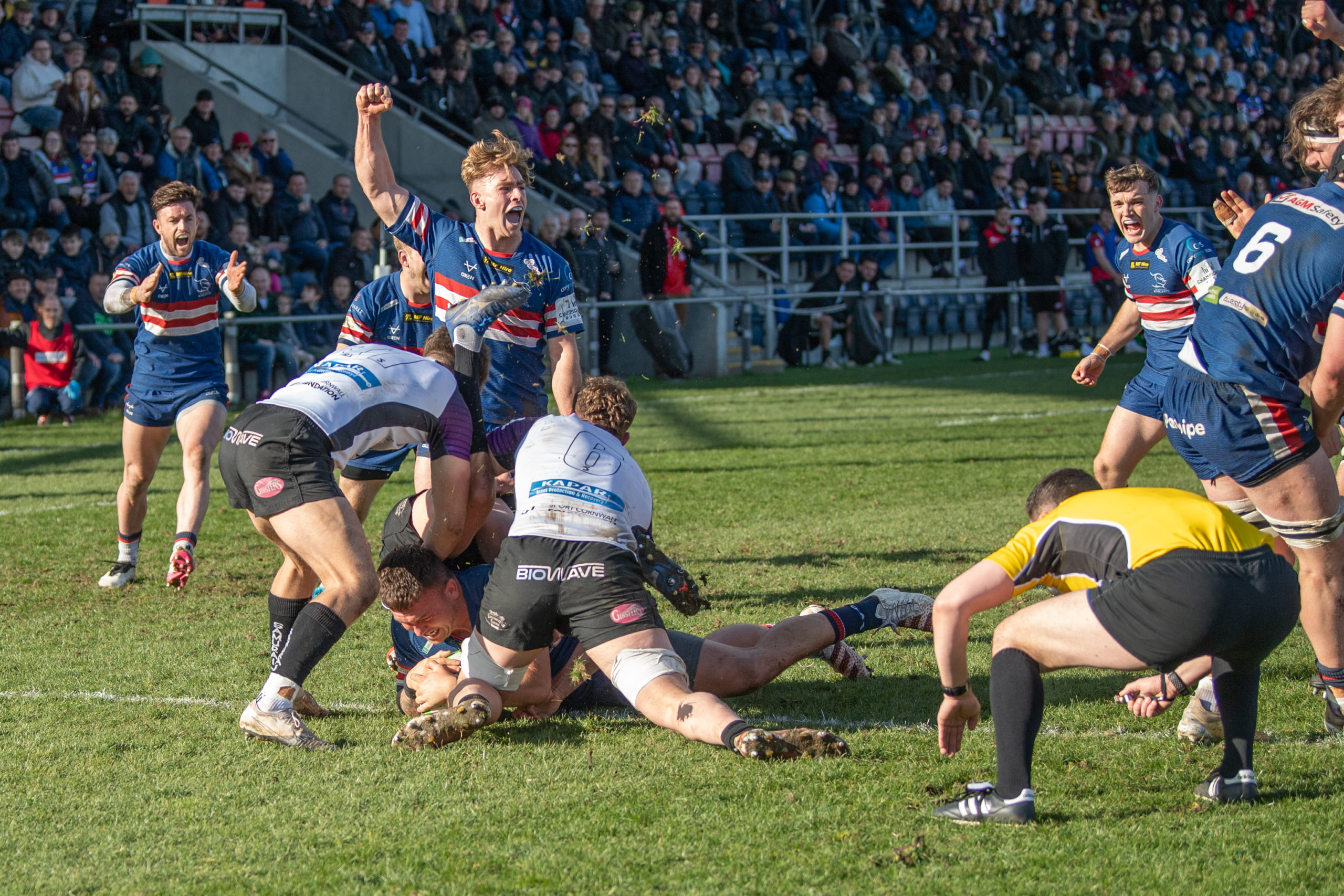
Season 21/22
2021/22 was an extremely impressive campaign from the Knights as they won 17 out of 20 games, pushing eventual league winners Ealing Trailfinders right to the final weekend for the decider on who would claim the title.
Throughout the season, 24 different Knights players crossed the whitewash for tries and top points scorer Sam Olver marked his 50th cap at home against Jersey Reds.
At the end of the season, 21 players were either retained or re-signed by the club as a further 11 departed – including 2 Premiership bound, 1 to the United Rugby Championship, 1 to retirement from full-time rugby and another to the Super League.














